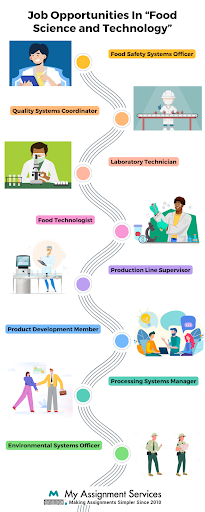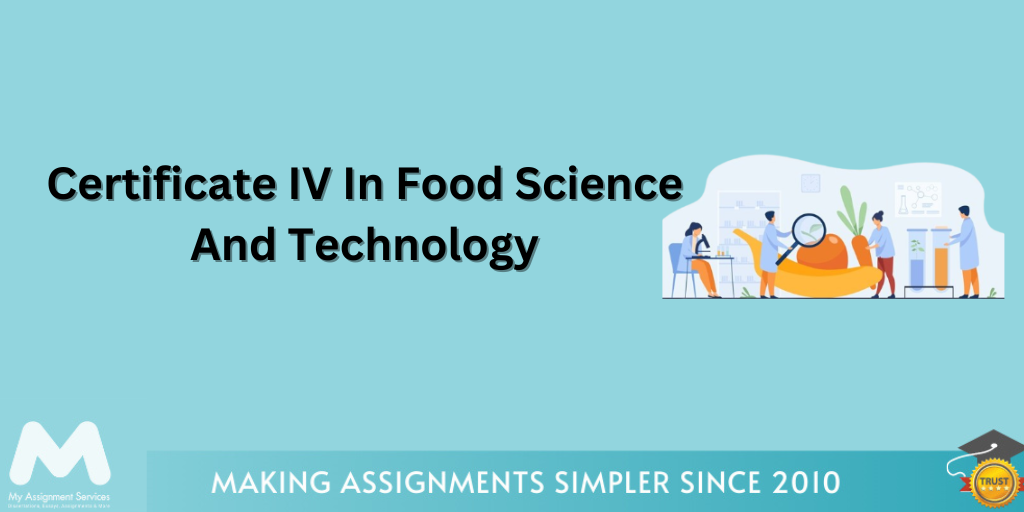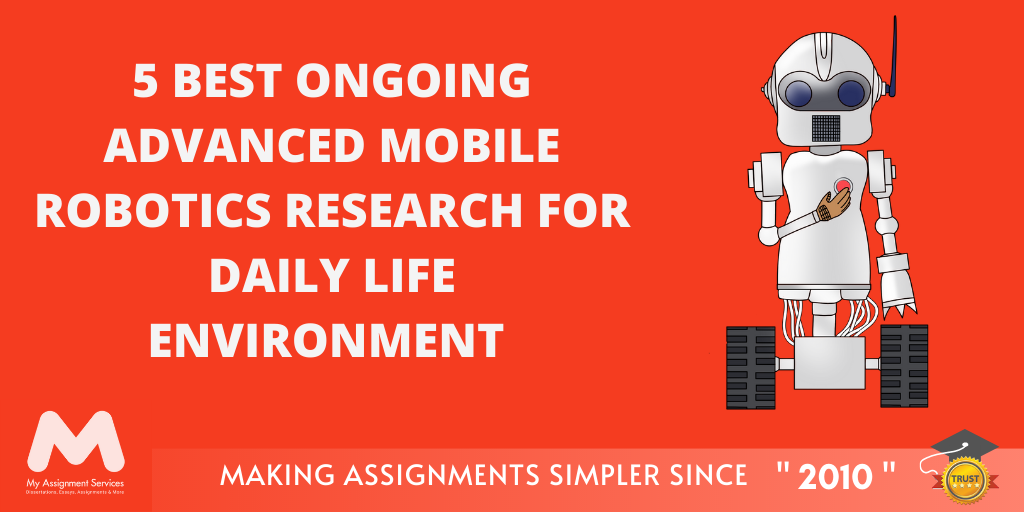Food science and technology combined make up the world’s largest and most vibrant consumer market. The study of food, combined with scientific studies and technology, generates valuable insights into food manufacturing. The scope of food science is wider than we can imagine since its application is wider. Every different region in the world uses food science to understand what they are consuming. It also helps in gaining insights into the food industry in terms of technology. These three combined are what our world consumes.
Are you a student who is looking for a diploma in food science and technology? Read further to know more about the different courses (literally and figuratively) you can take for this subject. There are options for both diploma and I-IV levels of certification for this particular course. Both of these academic levels provide different magnitudes of educational opportunities. However, both are almost similar in terms of what job opportunities you have. We will discuss food science and technology in detail, including its scope. We will also know about the difference between a diploma level of education and a certification. It will give you clarity on how you should approach this.

Levels of Education & Their Significance
You are required to be from a specific background to pursue the domain of food science and technology. However, we recommend you check with the specific universities and their requirements. Different universities require different specialisations from the students enrolled in this course. The options are wide-ranging to pursue studies for this wider field of education, containing different subjects. For starters, the level of education you can pursue is:
The certification levels from I to IV provide different levels of education and expertise. Levels I to II provide basic vocational programs and knowledge for a short-term duration. Levels III and IV are accepted by universities and count toward the Bachelor’s degree level. A certificate in this course will provide you with entry-level positions in the food industry.
-
Diploma and Associate Degree Levels
Diploma in food science and technology provides a more comprehensive understanding and practical knowledge. Advanced diploma is another level which also focuses on the practical application. Associate degrees are more academic than diploma levels. Diploma levels are much better than the I-IV Certificate Levels for this particular field.
-
Bachelor and Honours Levels
Bachelor's degrees are recognised worldwide in all universities. As a student, you will go through a four-year undergraduate program covering different aspects of this course. With this level of education, you can apply for roles in food research, product development, quality assurance, and food safety management. Honours degree is awarded at an additional level of education with a Bachelor’s degree consisting of an additional year.
Graduation in food science and technology opens a wide range of opportunities for students. It comprises subjects such as food preservation, sensory analysis, food biotechnology, and more. This level of education in this course will provide you with opportunities to work as interns. The practical experience provided to you by your university will allow you to gain real-world experience and valuable insight into it.
The Doctoral level of education is the highest level of education in this field. The purse for Doctorate level will award you with the Ph.D. title with highest seniority. This level involves research-intensive programs and conducting research with the experiments. A Ph.D. is highly recommended than any certification or diploma in food science and technology. This level will open the doors for you to work with the government as well.
The Wider Area Of Scope In This Course
This field allows a wider range of opportunities for students to excel in particular subjects. Each subject offers a different set of opportunities for students to further their education. The subjects you study will deepen your knowledge about a particular area of the wide food industry. It will also determine the path you have chosen to land a job appropriate to your course of study.
The kind of opportunities will depend on the level of education you are receiving. That’s why, look for additional assistance. Be it microbiology assignment help or help related to any subject, you can find it seamlessly. Ensure that you consider all the factors before finalizing the one for you.
Subjects In Certificate Level
Certificate-level subjects focus on fundamental knowledge and skills for entry-level students. Some of the major subjects are:
- Food Microbiology - Microorganisms in food, microbial growth, and methods for controlling microbial growth.
- Food Chemistry - Basic principles in food science and its composition, such as carbohydrates, lipids, vitamins and minerals.
- Food Processing - Commonly used methods to prepare food include heat processing, freezing, dehydration, and fermentation.
- Food Safety - Studies food safety and hygiene to prevent illnesses with sanitation and hygienic practices.
- Food Packaging - Parameters to understand the basics of packaging and labelling for food products.
- Food Quality - Different principles of controlling food quality, such as sensory evaluation, quality control, and compliance with food safety regulations.
- Industry Regulations - Studying the basic guidelines for government regulation focusing on food labelling, laws and regulations, and distribution.
- Workplace Practices - Studies the safety practices and healthy procedures at the workplace to ensure food safety.
Subjects In Diploma Level
The subjects while pursuing a diploma in food science and technology go a level higher than the certificate level. Some of the subjects mainly include:
- Food Chemistry - A thorough study of chemical composition found in food such as carbohydrates and proteins to understand chemical reactions.
- Food Microbiology - Studies include topics such as pathogenic microorganisms, microbial control strategies and others.
- Food Engineering - Detailed knowledge of the aspects of food processing technologies, equipment and methods of operation.
- Quality Assurance - Studying the quality control, quality assurance and statistical control following the food science and technology standards.
- Food Analysis & Testing - Analysis of chemical, physical and biological properties of food through chromatography, microscopy and more.
- Food Product Development - Principles of food product development include market research, product development, sensory evaluation, etc.
- Food Packaging - Study food packaging, including packaging design, materials, and regulations, along with other important modules.
- FQMS - Learn about Quality Management Systems such as ISO 9001, audits, documentation, and ensuring compliance with QMS.
- Nutritional Science - Elaborate on topics such as nutrition labelling regulations, nutrient metabolism, functional foods, and dietary guidelines.
Develop The Best Opportunities For You
Going for online chemistry assignment help when you are struggling with your studies is the best option. You might be a student who is working endlessly on the personal matters of your life. It can be a side hustle or taking care of your family with a part-time job. Managing your personal obligations with your studies is going out of hand. Time management is losing its grasp on you. You need to sort it out and balance the scales. But how can you do it all alone on your own?
My Assignment Services are here for you to provide with value-added benefits. Our team consists of academic experts who know what you go through very well. They have been at your place, finding themselves in similar situations to you. Our academic experts hold the level of experience you require in order to create the best food science and technology assignment and score well. The academic experts will guide you through the whole process of understanding the basics. As per your institution’s academic integrity, you are going to write it yourself. But they will guide you.
As you learned earlier, food engineering is one of the major parts of your course. We also provide the best online engineering assignment help in Australia. You will definitely score well, whatever it may be. So don’t just keep on reading and go ahead preparing the first draft!





